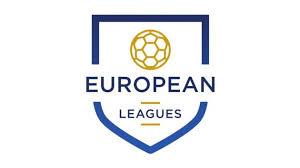October 25 – Gianni Infantino’s controversial $25 billion plan for two new international tournaments has come under further attack, this time from the umbrella body representing Europe’s major leagues.
Infantino’s proposal for a revamped expanded Club World Cup and a global Nations League is back on the agenda for Friday’s FIFA Council meeting in Rwanda with the FIFA president at last expected to divulge details of his pet project that is in danger of disrupting the entire footballing calendar.
The idea, reportedly backed by a consortium of international investors, is generating considerable scrutiny and all ears will be on Infantino’s press conference following Friday’s Council session. One of the biggest questions to be answered is why a group of supposedly profit driven international investors is prepared to buy out a fledgling FIFA competition in a commercial marketplace where the value cannot be hoped to met, even with a cannibalisation of FIFA’s other broadcast and sponsorship revenues.
The latest grouping to come out against the proposal is the European Leagues which represents 35 leagues in 28 countries.
Alberto Colombo, the body’s spokesman, told Reuters his members were opposed to “both the process and the content” of Infantino’s proposals.
“There has not been a proper consultation or impact study” said Colombo who stressed the plans would only increase the gap between the haves and have-nots.
Investors in Infantino’s pet project reportedly come from Asia, Europe and North America and, highly contentiously, are said to include Saudi money.
According to the BBC, the FIFA Council will be presented with two options for an annual Club World Cup, alongside Infantino’s for a 24-team competition every four years.
Especially interesting given speculation over Saudi funding, according to documents seen by the BBC, is that FIFA “would not enter into a joint venture for this purpose, whether directly or indirectly, with sovereign wealth funds of individual states”. This doesn’t necessarily guarantee the ultimate beneficial owner is not a sovereign wealth fund.
Contact the writer of this story at moc.l1714139093labto1714139093ofdlr1714139093owedi1714139093sni@w1714139093ahsra1714139093w.wer1714139093dna1714139093

